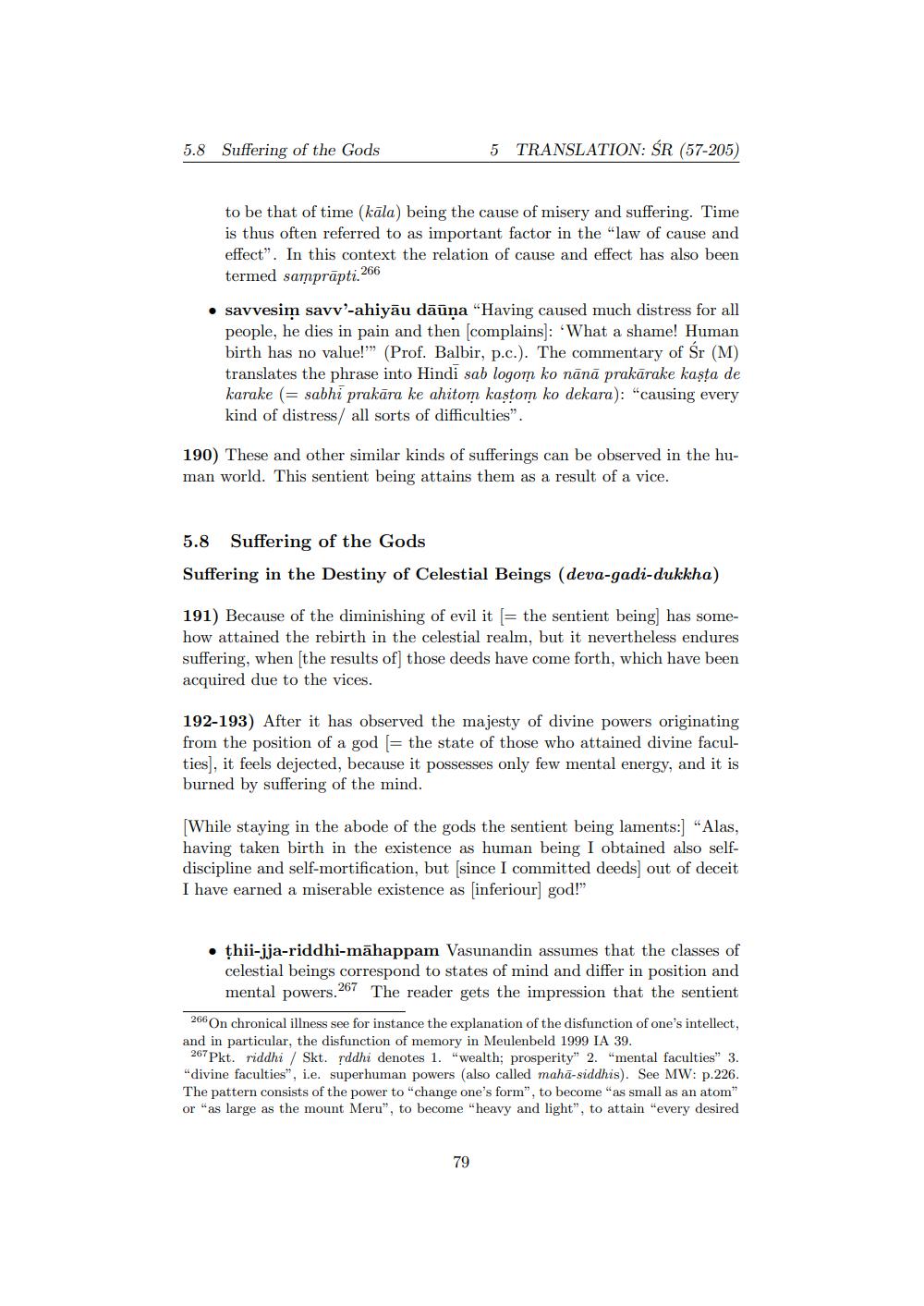________________
5.8
Suffering of the Gods
5
TRANSLATION: SR (57-205)
to be that of time (kāla) being the cause of misery and suffering. Time is thus often referred to as important factor in the law of cause and effect". In this context the relation of cause and effect has also been termed samprāpti.266
savvesim savv'-ahiyāu dāūna "Having caused much distress for all people, he dies in pain and then complains): 'What a shame! Human birth has no value!"" (Prof. Balbir, p.c.). The commentary of Sr (M) translates the phrase into Hindi sab logom ko nānā prakārake kaşta de karake (= sabhi prakāra ke ahitom kastom ko dekara): "causing every kind of distress/ all sorts of difficulties".
190) These and other similar kinds of sufferings can be observed in the human world. This sentient being attains them as a result of a vice.
5.8 Suffering of the Gods Suffering in the Destiny of Celestial Beings (deva-gadi-dukkha)
191) Because of the diminishing of evil it [= the sentient being) has somehow attained the rebirth in the celestial realm, but it nevertheless endures suffering, when the results of those deeds have come forth, which have been acquired due to the vices.
192-193) After it has observed the majesty of divine powers originating from the position of a god (= the state of those who attained divine faculties, it feels dejected, because it possesses only few mental energy, and it is burned by suffering of the mind.
[While staying in the abode of the gods the sentient being laments:) "Alas, having taken birth in the existence as human being I obtained also selfdiscipline and self-mortification, but since I committed deeds out of deceit I have earned a miserable existence as [inferiour) god!"
• thii-jja-riddhi-māhappam Vasunandin assumes that the classes of
celestial beings correspond to states of mind and differ in position and mental powers.26 The reader gets the impression that the sentient
266 On chronical illness see for instance the explanation of the disfunction of one's intellect, and in particular, the disfunction of memory in Meulenbeld 1999 IA 39.
267 Pkt. riddhi / Skt. rddhi denotes 1. "wealth; prosperity" 2. "mental faculties" 3. "divine faculties", i.e. superhuman powers (also called maha-siddhis). See MW: p.226. The pattern consists of the power to "change one's form”, to become "as small as an atom" or "as large as the mount Meru", to become "heavy and light", to attain "every desired
79




